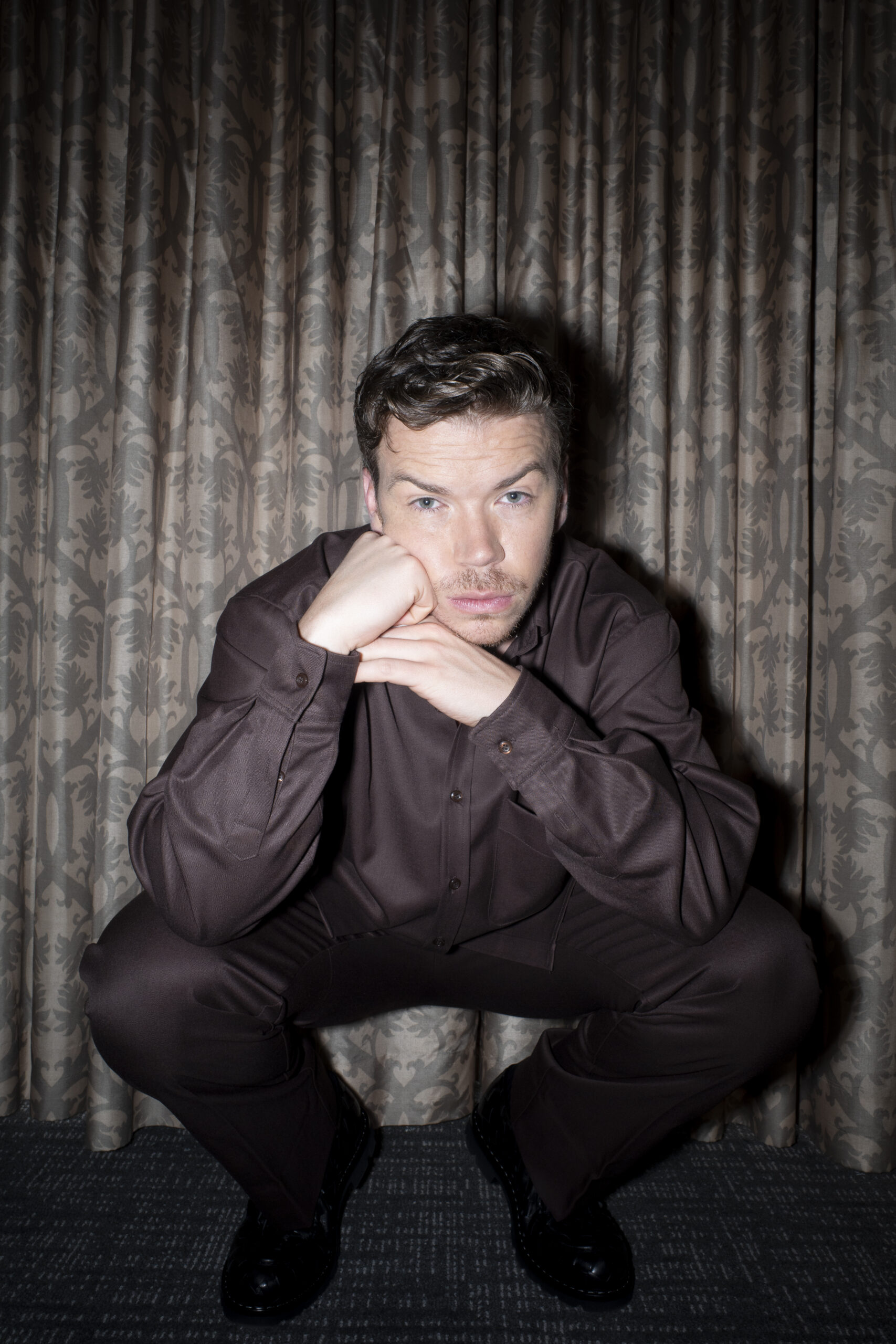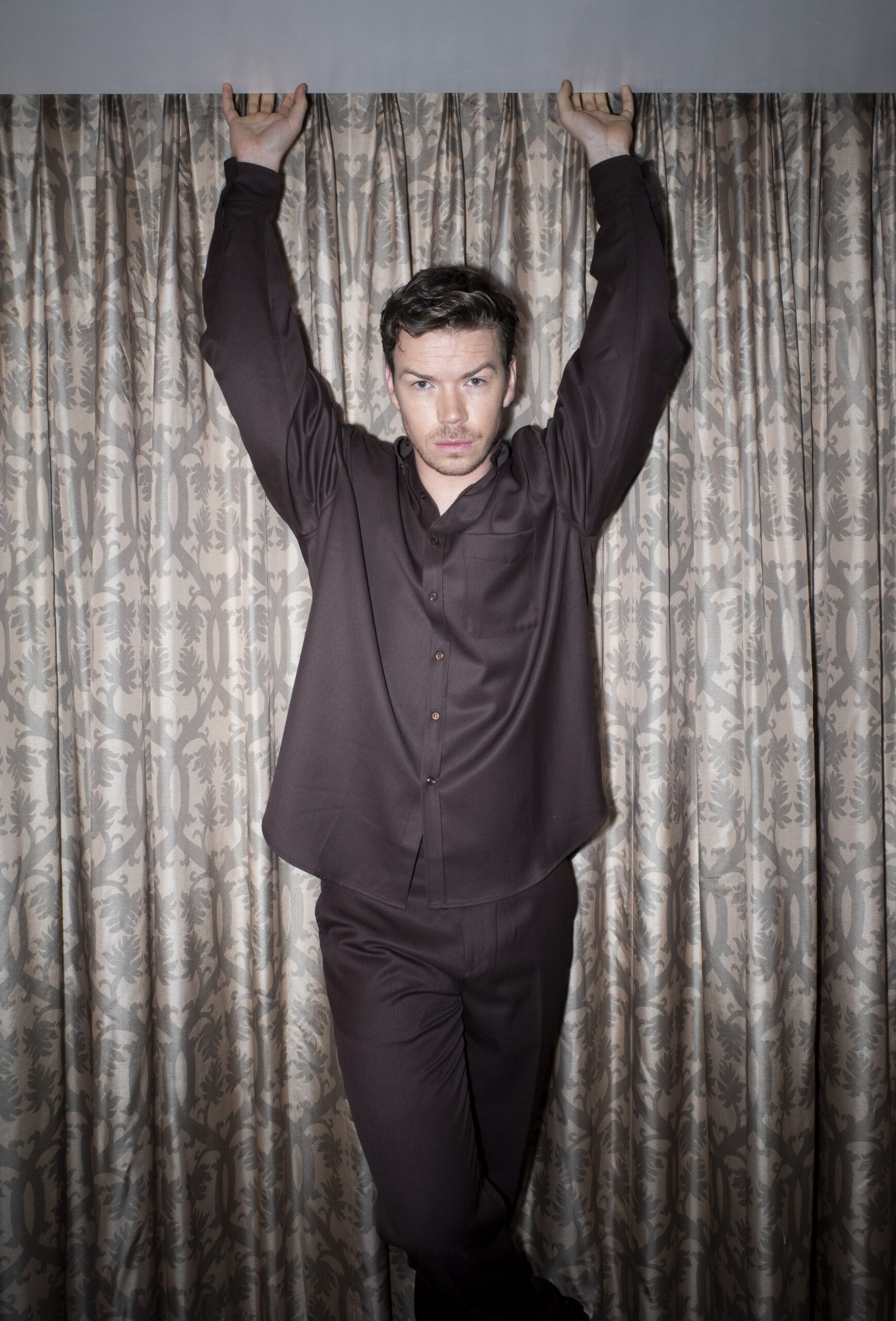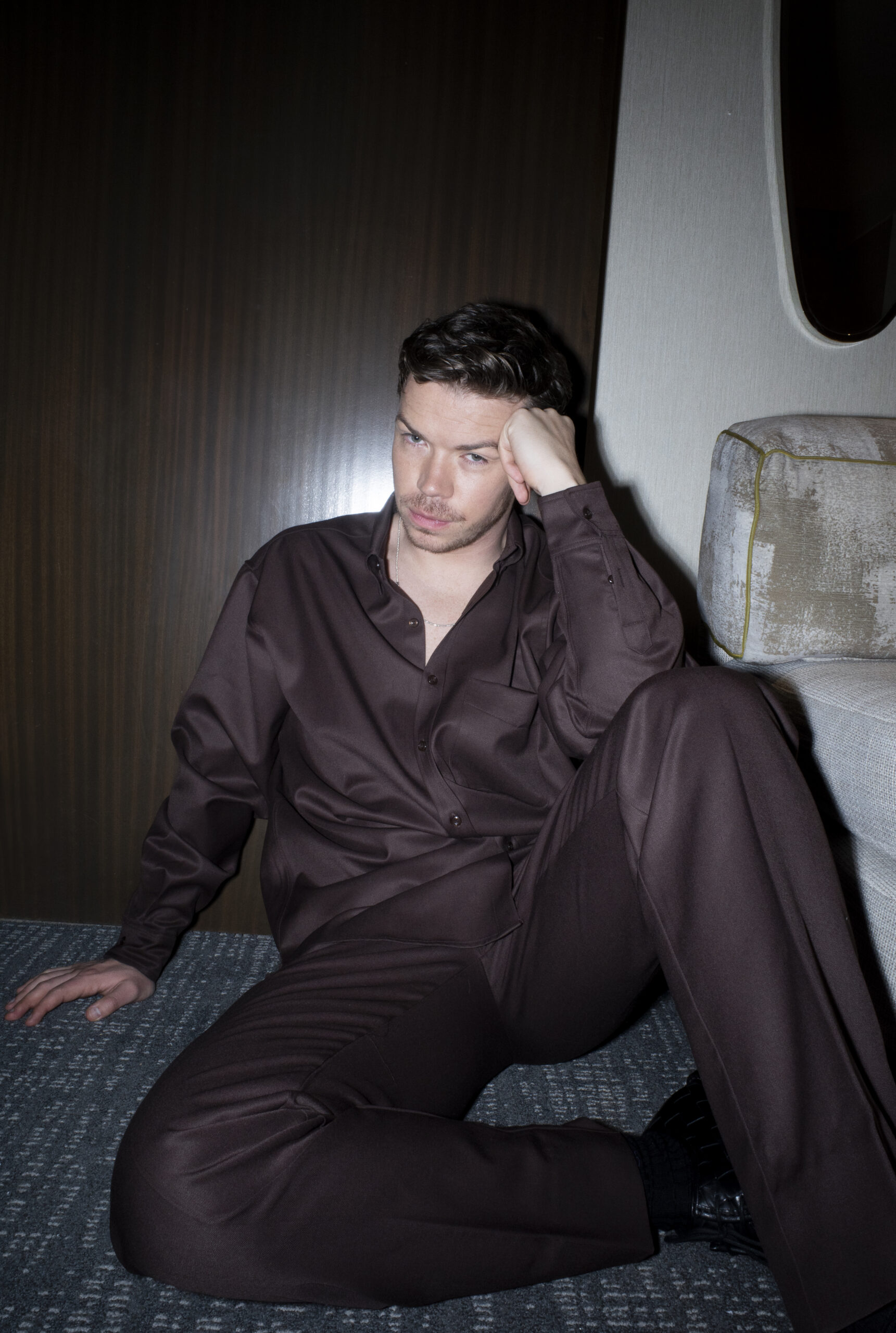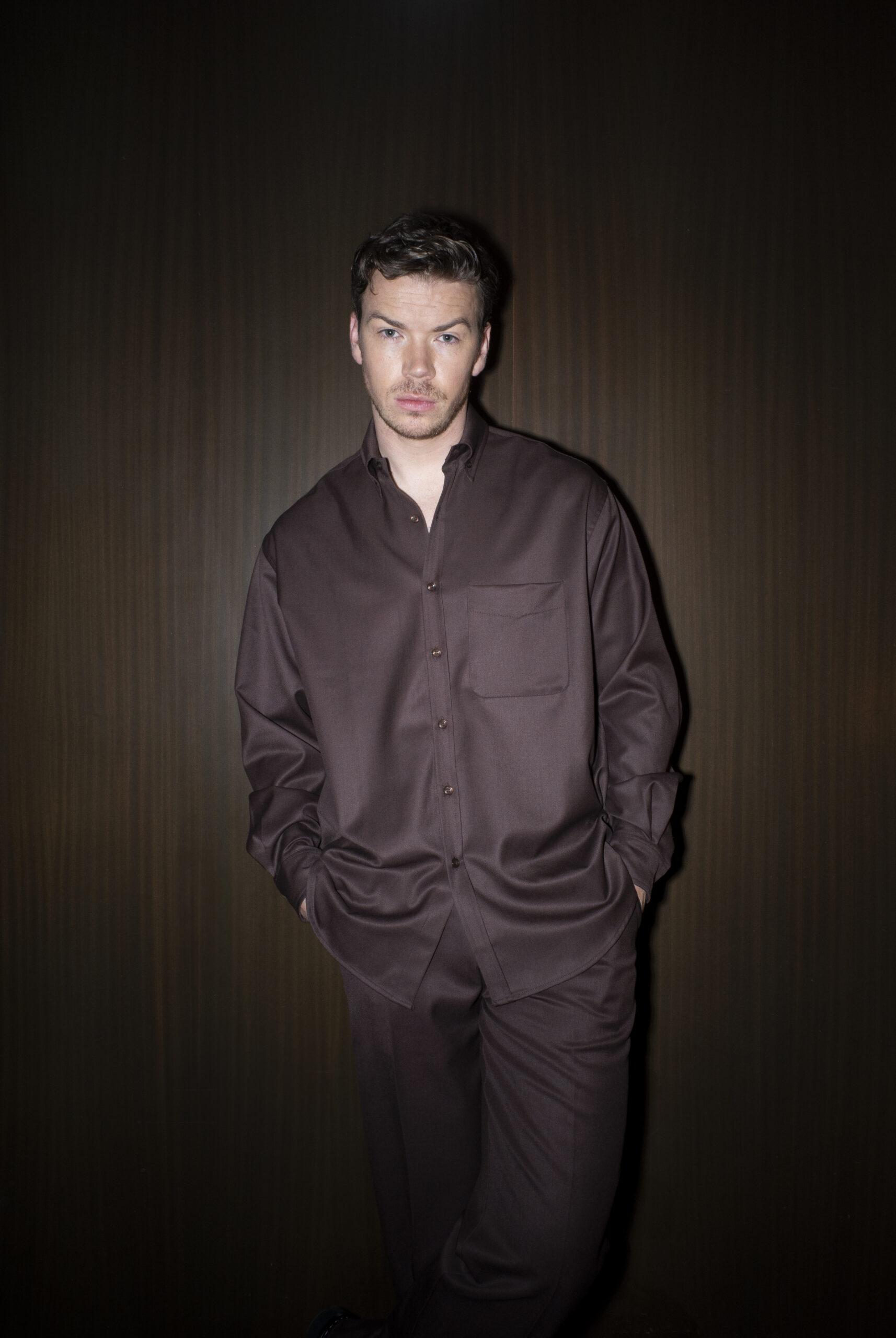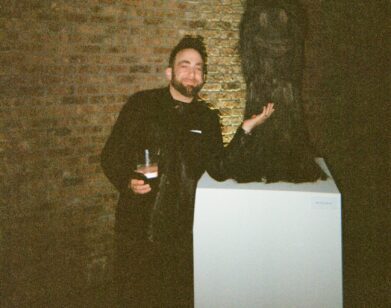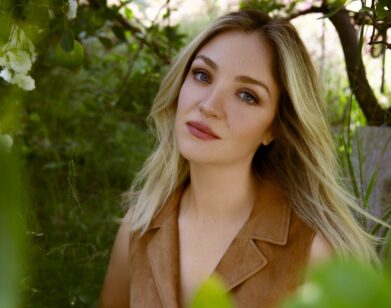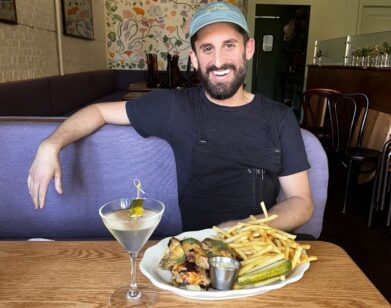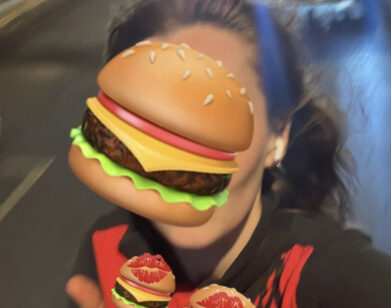Will Poulter Has Three Movies Out This Month. Kit Connor Wants to Know How He Does It.
Most actors would be satisfied to release four projects a year. But imagine four projects in one month, and you’ll get an idea of the kind of hot streak that Will Poulter’s currently on. It started with Death of a Unicorn, the surrealist directorial debut from Alex Scharfman, then came the seventh season of Black Mirror, where Poulter reprised his role as a druggy video game developer. Now, the 32-year-old actor is capping off his busy spring with Warfare, Alex Garland’s Navy Seal docudrama, and On Swift Horses, in which he stars alongside Jacob Elordi. “That misrepresents how busy I’ve been,” Poulter quipped to his Warfare co-star Kit Connor. “There’s been plenty of unemployment over the last two years.” After a global press tour, the pair reunited to talk about their matching tattoos and the child actor work ethic.
———
WILL POULTER: You’ve got a notebook—how professional! I’m peeling eggs.
KIT CONNOR: I’ve written up some questions. I’m fucking ready to go.
POULTER: Will you forgive me if I eat during this?
CONNOR: Please do. In fact, I might get a little snack.
POULTER: That would make me feel better.
CONNOR: Let’s get comfy. Are you ready?
POULTER: I’m going to try and force this to be a little bit more of a two-way conversation.
CONNOR: Well, I’ve got some really brilliant questions. The first is, how are you?
POULTER: I’m good. I’m sort of still coming down off the high that was being together as a cast on Warfare and promoting it. We were in so many different parts of the States, and then London as well. It was so great to get everyone back together again.
CONNOR: It was like a flashback. And you’re in Ohio, right?
POULTER: I’m in Ohio. I’m literally across the street from Noah [Centineo], who got in last night. Where are you?
CONNOR: I’m in London, but let’s get to the hard-hitting questions. Am I right in saying it’s been about 20 years that you’ve been working?
POULTER: Yeah, fucking hell. That really does make me feel old, but yes.
CONNOR: You had such a variety of stuff, even in those early years. You’ve got Narnia, School of Comedy, Son of Rambow. With all that variety and the different directions you were going in, was there a point where you decided, “I don’t just want to do comedy or drama, I want to try and cover as many bases as possible”?
POULTER: To a large extent you take what you get. But the people that I looked up to definitely did a range across comedy and drama. I think I got lucky in the sense that Son of Rambow was my first ever audition, and it was inherently a drama and a comedy, and that really gave me the bug. It was a sweet group of people making this small film in the English countryside over the summer holidays. And then Narnia was a big step up in terms of scale and, I guess, pressure. I was still at school at the time and the majority of my family moved with me. I don’t know whether you felt this when you started, but the naïveté of youth is quite insulating. It’s like, “Well, I don’t even really have a concept of the pressure or how many people are going to see this or how big it is, so I’m just going into it in a slightly fearless way.”
CONNOR: Yeah, exactly. I had been offered a film that was a really cool job, but I had this massive question mark around it because it meant that I would have to miss out on the big school trip at the end of primary school that I’d been waiting for for years. I ended up having to miss it because I took that job. You look back and you’re like, “Wow, what a stupid little kid I was,” but at the same time, it’s kind of brilliant that I was only doing it because I wanted to do it, instead of, “Oh, this is going to be brilliant for my career.”
POULTER: Right. There’s something pure about those times.
CONNOR: You and I have had it, for the most part, quite easy—that child acting experience.
POULTER: We have had it relatively easy. I think if the point at which you’re super famous intersects with your formative years, I imagine maintaining a sense of sanity and good mental health must be so hard. I found it hard enough as it was, independently of being an actor. I’m grateful that I didn’t start getting recognized on a regular basis until my early twenties.
CONNOR: So this is fucking ridiculous. You have four projects out this month.
POULTER: It’s a bit weird, isn’t it? That misrepresents how busy I’ve been. There’s been plenty of unemployment over the last two years.
CONNOR: Regardless, someone in the scheduling world loves you, because Warfare, On Swift Horses, Death of a Unicorn, and Black Mirror—that’s bonkers, man. From my experience, and the fact that you have four projects out this month, you are a bit of a workhorse. You have a really strong work ethic.
POULTER: Thanks, man.
CONNOR: I obviously saw that work ethic on Warfare, and it was incredibly impressive. Is there something that drives you to keep going?
POULTER: I appreciate that, brother. The first thing I will say is, having a strong work ethic has almost been a coping mechanism, or rather a form of compensation, for a lack of ability. I’m quite used to not being the best at things, so I’ve compensated by working hard. That was my experience of school, and that’s how I responded to any given subject. I was like, “I’m so distinctly average and middle of the road that I have to work my hardest.” I felt that way about virtually everything. Drama was the only space where I was like, “Oh, I naturally have taken to this a bit.”
CONNOR: Yeah.
POULTER: With virtually everything else, I had to work my socks off to keep my head above water. Part of that is having learning difficulties and other things, but I’ve always also really admired work ethic. My dad and my mum are both incredibly conscientious people, and they reinforced this message to me very early on of, “We will never come down on you for not having the best grades or falling shy of the mark, so long as you’ve tried your hardest.” It’s very difficult to fault people who are trying their hardest.
CONNOR: I’ve witnessed it firsthand. Another thing I witnessed is you were put in a position of leadership. You weren’t the only leader on that set, but you were, for example, my leader, the way that our roles were set. You took to it very quickly, and it didn’t feel like a major adjustment for you. Have you had much experience both on and off set doing that before, or was this a new experience?
POULTER: A lot of what I did in respect to fulfilling that leadership role was dictated to me by representing Captain Eric, whose real name is protected for obvious reasons—he’s still active duty. What was cool is that we all maintained a healthy level of awareness of the idea that we’re all equals through this. We all shaved our heads on day one. And that’s because in the basic underwater demolition SEAL training program, everyone goes in with zero ego. Everyone is equalized by the process. Anything that represented any kind of chain of command or any kind of hierarchy was just down to the mission statement, which was to honor the facts of the story. The only thing I’ve done which was similar was a film called War Machine, where I played a U.S. Marine and I was required to be a sergeant in a platoon. That afforded me a glimpse into just how close we were all going to get as a group. I was doing the math and I was like, “If we’ve got three-and-a-half weeks together, and a shoot that was probably three times the length of what we all did on War Machine, we are going to be like brothers at the end of it.” Cut to now and we’ve all got matching tattoos.
CONNOR: You said that to me when we first sat down for a coffee before. You told me that story and I thought, “Well, it’s only three-and-a-half weeks. How close can we get?” After a week we were saying, “I love you.”
POULTER: [Laughs] Right.
CONNOR: You were pretty spot on. You’re very open about mental health and online bullying and you’ve worked with a lot of charities. That, I think, is also a testament to the idea of using your platform and people’s perception of you and spinning it in a positive light. How long have you been engaging in those kinds of things? And also, does it feel like a responsibility that you have as someone who’s in the public eye?
POULTER: Broadly speaking, I do feel that responsibility, but not in a way that’s burdensome—in a way that enriches my life. It really started with an anti-bullying program back in 2010, just after Narnia. That was the first time I was able to leverage my position, if you like. But I think the desire to engage in charity work comes from my family. So many of them are in healthcare and care roles, and I’m inspired by them in that respect. But I’m not an activist. If I was, I’d be on a much different salary and I’d be doing it far more often than I am. My role has been to draw attention to great causes. Obviously, we work in an industry where there’s so much attention on us, and the amount of attention on us feels disproportionate in the context of who’s doing really impactful work. We’re really lucky when our work gets to intersect with social action and affect change, and I don’t dispute that it can and always look for those opportunities. But the real work is being done by people who are very often in the shadows.
CONNOR: I agree. You’ve played plenty of roles, you’ve also learned a lot of different skills. Has there been anything you’ve had to learn that has really stuck with you the most? For example, cooking on The Bear.
POULTER: That’s one of the coolest things about our job. I’ve always felt like I cannot be behind a desk because I really struggled in classroom environments. I was like, “I need to be doing something that feels like the antithesis of this,” and acting does. I’m a big believer in the idea that variety is the spice of life, and I love that about what we do—that we’re afforded the opportunity to sample all these different careers and experiences in a single lifetime. I’m so honored that I got to step into the hospitality world. I feel so privileged that I got an opportunity to receive special forces training. These things are so amazing. There’s times I’ve really struggled, like with Black Mirror. I’m playing a coder, and I bought a book that was like, Coding for Dummies, and Charlie Brooker made me a book that was fucking shoebox thick when I was 10 pages into Coding for Dummies because I found it so hard. There’s times where the skill set is really difficult, but the bread and butter of it is less about skill set and more about understanding the psychology.
CONNOR: Absolutely. In the last couple of years, you’ve worked with some amazing directors.
POULTER: Geniuses.
CONNOR: Ae there any that have left a real lasting impression?
POULTER: Oh, man. I’ve been really lucky to have that many bosses, you know? That’s another thing that feels quite unique about our job, being led by that many people. And I try to take something from everyone. Good, bad, and the ugly. Kathryn Bigelow stands out as one of the best leaders I’ve worked for. Michael Apted, who passed away but directed Narnia, gave me invaluable advice and he didn’t mollycoddle me. You probably know this. As a young actor, you’re almost looking to be treated like an adult.
CONNOR: Yeah, because you’re surrounded by them and you don’t want to be the odd one out.
POULTER: Exactly. But yeah, I’ve tried to take things from everyone that I’ve worked for. I always have my mental notebook out, because—it’s kind of a cliche—but every day is a school day if you allow it to be.

